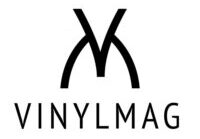Lillie West has described her recent past as one of “general violence.” In the midst of writing her follow-up to 2016’s delicate Sleepyhead, West’s inner circle faced home invasions, assault, and death, leaving her running inward, dreading the world outside. Through fear and personal deconstruction, West’s latest album as Lala Lala makes big realizations around strong, unpredictable melodies that always return to the center. The Lamb—out today on Hardly Art Records—is a massive leap forward in songwriting from the Chicago-based artist: a multi-genre exploration of looking inward to project outward.
The Lamb opens with the lead-off single, “Destroyer” – a sitrep of distrust. The most garage-friendly offering of the album, we’re met with a walking beat fleshed out by aggressive strums. West offers up a fear of continued self-destruction alongside a realization that her mistakes were ones that she could have saved herself from.
“Destroyer” would be the perfect opener to a bedroom garage record; West decisively forgoes this in favor of focused exploration. “Spy,” a playful, crunchy ridicule of introspection, is a drum-machine skip teetering on the edge of pop-punk. “Water Over Sex,” a reflection over sobriety, is a true gem, combining choral yawns with surf-toned guitar. West examines the guilt that comes with fun and loss of control, and in the process creates one of her best tracks to date.
This pronounced, echoed motif continues near the album’s median with “Dove”, a reverberating song dealing with what West calls “very plainly about the death of someone I loved a lot and the guilt I had, and still have, afterwards.” The melody lies almost solely with the vocals, as if reaching you in a hallway from being bounced off the surface of the bathroom floor. A vulnerable realization, the song needs very little to take up a large amount of room. This space is given up at the track’s abrupt conclusion, as if the thought leaves one too vulnerable to continue entertaining.
West ventures further with her songwriting chops in the jangle-pop swing of “The Flu.” Bright melodies are the spoonful of sugar to a story of focused self-destruction to the point of hurting others. The contrast is a perfect balance of grime and sheen. This proves an exquisite set up to “Copycat,” a telling of West’s hyper-analyzation in her new sobriety: “Everyone talks this way, everyone looks the same / and maybe one day, I’ll be surprised / with my twin fists and my twin eyes.” There’s a frustration that comes along with expression in a crowd where everyone (including yourself) thinks and reacts the same, and West’s delivery is of pure boredom.
Falling into The Lamb’s second half is a series of impeccably-expressed feelings and new sound tableaus. The album’s shortest track, “Moth,” begins as an aggressive, percussion-less track of dissonance that gives way to dream pop melodies; it’s a treat that lasts just long enough. “When You Die” is a post-punk confessional stemming from the death of a number of close ones in a small amount of time. Much of The Lamb deals with futility, but this is one of the only times when it is met with defiance instead of resentment.
The album’s closer, “See You at Home,” builds off of earlier, airy tones and brings an assurance that cements all of the previous tracks by contrast. The lyrics read like a vulnerable letter left on a countertop by someone stepping out for the first time in a while. The combination of these words with a simple, saxophone-backed melody would have this song easily fit on any Dan Bejar record.
The Lamb is a merciless inspection of one’s values and motivations, and it undoubtedly has not come at a price for West, but this has inspired a record filled with adventurous turns in tone that gel into an authentic, confident snapshot of a woman growing in her dimensions. She has left the house she’s locked herself in without bothering to close the door, and The Lamb is a sonic road map of where she could go next; something entirely up to her.
8.4 / 10.0


